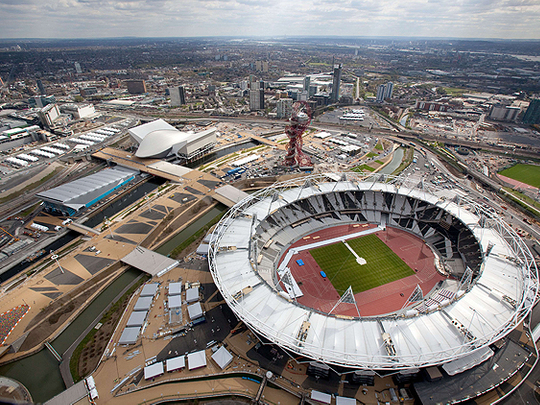
London: Britain's military has told residents of an upscale apartment development near the Olympic Park in east London it is installing a missile battery on top of a tower within their housing complex to defend the 2012 Games this summer.
The site is one of a number around the capital the army is considering as bases for surface-to-air missiles to protect the London games from an aerial attack, the Ministry of Defence said.
It is the first time such missiles have been deployed in London since the end of the Second World War, shocking some residents at the Bow Quarter housing development, sited in a converted red-brick Victorian match factory.
"There was no consultation, no one knocked on the door," Brian Whelan, a 28-year-old journalist, told Reuters. "You just wake up one morning, there's a leaflet telling you they are going to put missiles on the roof."
The measure was excessive and had upset his girlfriend, he said. "I can't imagine the circumstances that would require you to fire missiles over a highly populated area."
Defence Secretary Philip Hammond first announced the plans in November, saying Britain would follow the precedent set by previous Olympics such as the Beijing games in 2008 where surface to air missiles were stationed a kilometre south of its showpiece stadiums.
The defence ministry said in a leaflet sent to occupants on Saturday it had chosen the former water tower in the Bow Quarter complex because it offered "an excellent view of the surrounding area and the entire sky above the Olympic Park."
The tower was in fact "the only suitable site in this area for the HVM (High Velocity Missile) system," it added.
The rooftop missile battery is one of a number of extraordinary measures Londoners can expect during the high-profile sporting festival, including restrictions on road lanes for Olympic use and a security bill of more than a billion pounds ($1.6 billion).












